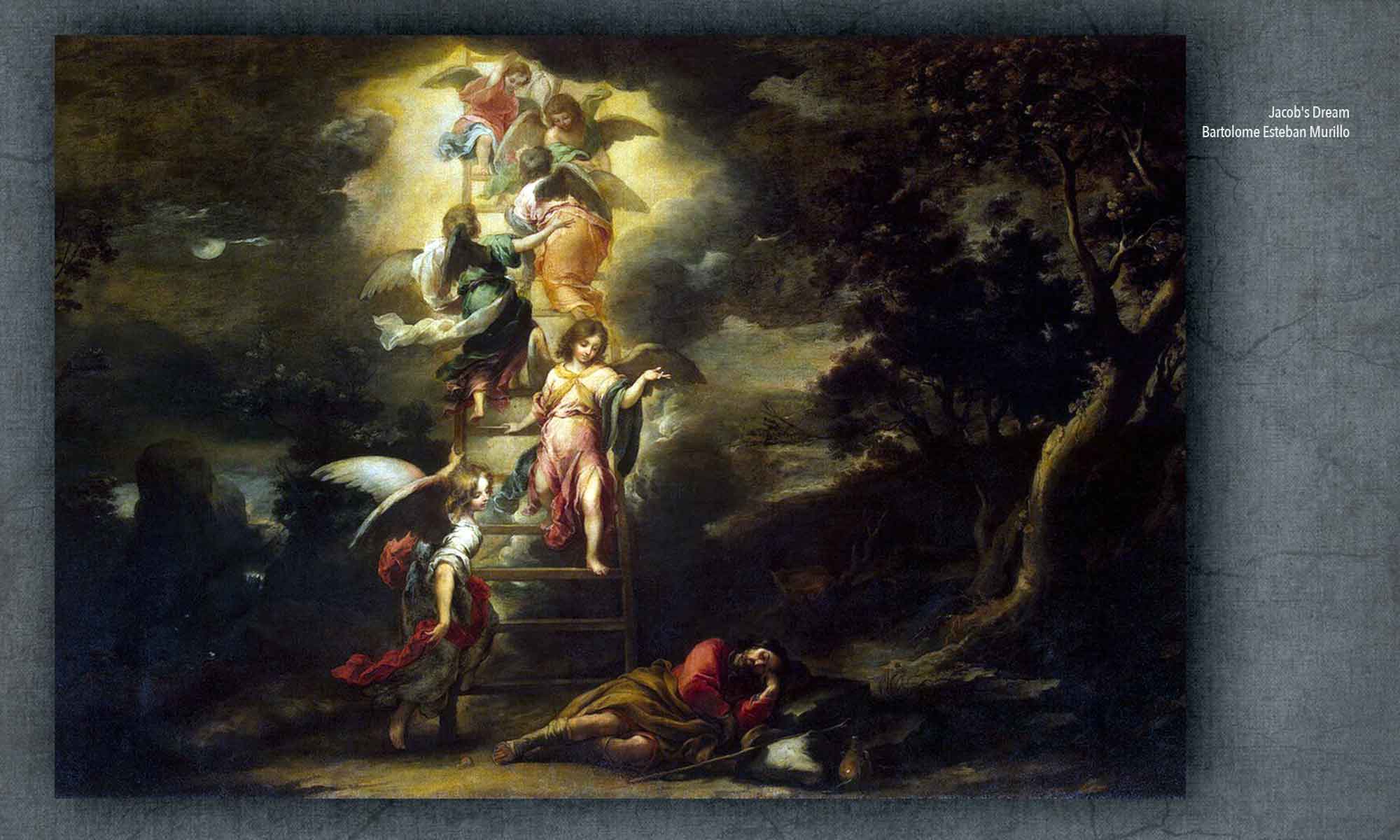 A new article about dreaming and sports, co-authored by me and Michael Schredl, has just been accepted for publication by the journal Dreaming. We do not yet know in which issue of the journal it will appear, but we are very excited to share our findings at last! We analyzed the survey responses of @4500 American adults who answered questions in 2021 about their sleep, dreams, and interest/participation in sports. The results of our analysis suggest a number of practical implications for athletic training, cultural analysis, and dream research. Michael has done several previous studies on this topic, and I was glad for his collaboration. My curiosity about sports and dreams derives from ideas I have been developing about dreaming as form of play. This study offered an opportunity to see how those theoretical ideas relate to the empirical data of the survey.
A new article about dreaming and sports, co-authored by me and Michael Schredl, has just been accepted for publication by the journal Dreaming. We do not yet know in which issue of the journal it will appear, but we are very excited to share our findings at last! We analyzed the survey responses of @4500 American adults who answered questions in 2021 about their sleep, dreams, and interest/participation in sports. The results of our analysis suggest a number of practical implications for athletic training, cultural analysis, and dream research. Michael has done several previous studies on this topic, and I was glad for his collaboration. My curiosity about sports and dreams derives from ideas I have been developing about dreaming as form of play. This study offered an opportunity to see how those theoretical ideas relate to the empirical data of the survey.
Threat Simulations in War Dreams
 An outbreak of war and violent conflict is very likely to prompt a wave of nightmares of traumatic experiences, mournful losses, and threat simulations. This seems to be part of our internal crisis-response system when the external world descends into chaos and bloodshed, and our minds struggle to make sense of what is happening and find a way to survive the dangers.
An outbreak of war and violent conflict is very likely to prompt a wave of nightmares of traumatic experiences, mournful losses, and threat simulations. This seems to be part of our internal crisis-response system when the external world descends into chaos and bloodshed, and our minds struggle to make sense of what is happening and find a way to survive the dangers.
A few days after the Russian invasion of Ukraine, I had a conversation with two journalists from Eastern Europe who were working on a project relating to dreams. The focus of their project was not the war, but it inevitably came up in our conversation. They shared a couple of dreams with me, and afterwards sent me another from a friend of theirs. With their permission, I am sharing the dreams below. I find the dreams haunting, horrifying, profoundly creative, and ultimately hopeful.
P., 27 years, male, a semiotics graduate from Czechia
A few days after the start of the war in Ukraine I had this dream:
I went to visit my parents at their house in a Czech village. I wanted to talk to them that night about everything that happened after the war started, but the conversation didn’t go as well as I had hoped and it wasn’t a very warm meeting. I felt disappointed.
Then I was all alone in the room when suddenly I heard a crackling sound from outside. I turned to the window and I saw a great rising glow that blinded me completely. I knew it was a nuclear bomb explosion, and at that moment time seemed to stop for a while. I realized that these were the last moments of my life. (I even recalled some fragments of my life passing through my mind.) Then I woke up.
At first, I wanted to forget about the dream, it felt too horrifying, but then I realized that maybe it is useful in something. It allowed me to imagine an absolute ending, the worst-case scenario. The next morning, I felt different, as if I had to do everything in my life from now on to ensure, such a situation would never happen.
P., 27 years, male, a semiotics graduate from Czechia
I was walking down a street of a historic town, alone or with a friend. I saw two political marches going against each other, one with banners over their heads with microscopes drawn on them, and the other with wooden swords. There was a tension rising, and I wouldn’t expect they would attack each other, which they did, and suddenly it was chaos everywhere on the street. I thought, ok well maybe there was a chance I would expect they could start fighting, but still I wouldn’t expect it would get so harsh, given the fact that their wooden swords were clearly only replicas of the real medieval weapons. So I went on to hide in a back street, but it was noise all over the place, it was a nightmare. I woke up.
R., 27 years, female, Slovak student of filmmaking and French philology
Personally, I can only recall one fragment of a dream linked with tanks. The dream contained some banal everyday story, which I don’t remember and meanwhile, tanks were coming in the night by streets accompanied by something between fireworks and airstrikes, the night sky over the tanks was spectacularly on fire. In the dream, the tanks that kept coming felt like everyday routine.
The interesting thing is, I’ve heard from three more friends from Prague, that they also dreamed about tanks in particular. My first guess “why” is about something deeply rooted in the historical memory of local people. When someone says “when tanks arrived”, or just “the tanks” most of the time it refers to the Occupation of Czechoslovakia in the August of 1968. In general, mostly the older generations use this term(s). Also, many people at protests or in the media are making this reference nowadays- between the tanks of the Warsaw Pact troops back in 1968 in Czechoslovakia, and Russian tanks in the war with Ukraine now.
M., 27 years, female, Slovak translator and student
(I experience the worst intrusive images of violence associated with war during the day, probably also tied to the fact that I work as a translator for Memory of Nations, thereby I work with recollections of torture (by Nazis), hiding before Russian soldiers liberating Czechoslovakia, who were looting and looking for women to rape, interrogations by State Secret Services etc daily.)
“Amongst the few dreams about the war in Ukraine, I can most vividly recall the following. At that time, I had a fever, it was approximately 4 days after the war started and we were preparing some items to donate to a local charity.
Dream: I work in the local charity, we are collecting the items and sorting them for transport to the Ukrainian border. Lorries with new items keep coming, the hall is full of boxes with clothes, sleeping bags, toys, food, we are working day and night to sort the incoming material help, but it is impossible. We start to receive many calls, amongst them also video calls from Ukrainian president Mr Zelenskyj. In the style of his famous video-addresses to the world and his own citizens, each of the calls are like a short vlog, in which he encourages Ukrainians to fight, calls others to help and reprimands us for not working efficiently. With every call, the addresses become more bizarre, Zelenskyj becomes angrier and at the end, the calls purely consist of Zelenskyj absurdly scolding us for being lazy, disorganized, responsible for many deaths because we cannot even sort out material help properly.”
Basketball Diary #5: The Court of Greg Brown III
 This has been a rough season for fans of the Portland Trailblazers basketball team. The players are learning a new system from their rookie head coach, Chauncey Billups, in his first season in that role. Their star player, Damien Lillard, plays poorly (by his standards) at the outset, then is forced to undergo season-ending surgery. Three other players in the original rotation—Cody Zeller, Larry Nance Jr., and Nassir Little—go down with injuries. The General Manager of the team, Neil Olshey, is summarily fired after years of internal conflict, leaving the operations in the hands of neophyte executives and detached ownership. Just before the trade deadline they deal away three of their best remaining players—Norman Powell, Robert Covington, Jr., and the beloved C.J. McCollum. In return the Blazers receive some promising guys (Josh Hart, Justice Winslow, Keon Johnson), plus draft picks and salary cap flexibility (an aspect of the game I don’t understand and don’t want to understand). In the midst of it all, the team wins a few surprising games, but loses many more, often by huge margins. Now, with a season-ending injury to Jusuf Nurkic, the lone remainder from the starting line-up at the beginning of the season, the Blazers have been reduced to a fragment of what they hoped to become this year.
This has been a rough season for fans of the Portland Trailblazers basketball team. The players are learning a new system from their rookie head coach, Chauncey Billups, in his first season in that role. Their star player, Damien Lillard, plays poorly (by his standards) at the outset, then is forced to undergo season-ending surgery. Three other players in the original rotation—Cody Zeller, Larry Nance Jr., and Nassir Little—go down with injuries. The General Manager of the team, Neil Olshey, is summarily fired after years of internal conflict, leaving the operations in the hands of neophyte executives and detached ownership. Just before the trade deadline they deal away three of their best remaining players—Norman Powell, Robert Covington, Jr., and the beloved C.J. McCollum. In return the Blazers receive some promising guys (Josh Hart, Justice Winslow, Keon Johnson), plus draft picks and salary cap flexibility (an aspect of the game I don’t understand and don’t want to understand). In the midst of it all, the team wins a few surprising games, but loses many more, often by huge margins. Now, with a season-ending injury to Jusuf Nurkic, the lone remainder from the starting line-up at the beginning of the season, the Blazers have been reduced to a fragment of what they hoped to become this year.
Perhaps the green shoots of new growth that signal better things for the future can be observed in player performances today, even in recurrent circumstances of dispiriting defeat. Three guys in particular—C.J. Elleby, Trendon Watford, and Greg Brown III—have been interesting to watch this year, as their roles have shifted dramatically from regular “DNP (coach’s decision)” benchwarmers to starters and vital rotation players. Each of them has an impressive set of skills and abilities they are testing and honing against the toughest competition they’ve ever faced. Sometimes it’s painful to watch, but just as often there are flashes of potential that seem to be harbingers of future greatness. Twenty-year old Greg Brown III, for instance, has so much athletic talent and basketball intuition, I can easily imagine him continuing to grow and eventually becoming a dominant player in his own right. When he’s on the court now, there’s always a sense he might do something amazing, some huge, leaping feat of blocking a shot, stealing a pass, or slamming an alley-oop dunk on a fast break. He and C. J. Elleby are the best on the team at that latter move, one that electrifies a crowd and pumps up the whole team.
My dreams about the Blazers this year have been vague and impersonal, but this brief one (following a 124-92 blowout loss to the Denver Nuggets) expresses special hope for the future play of Greg Brown III:
Lots of Energy
I am helping Greg Brown III with his basketball court, the game that is happening there….Lots of energy, with players moving quickly back and forth on the court….
The feeling is that the court is his, Greg Brown III’s. Like he owns it and reigns over whatever happens on it. Hmm. It’s true, now that I think about it, GBIII is the only player on the team right now who is emotionally demonstrative when he makes an amazing play. After dunking hard over another player, he doesn’t pretend to be cool and nonchalant. No, he lets everyone in the arena know what he just did. He expresses authentic, heartfelt enjoyment of these heroic moments, which is really all that we fans want, a chance to share in those moments of enjoyment. It also makes it easier to sympathize when he tries to dunk or block a shot and fails spectacularly, which happens rather frequently, too.
It’s hard to avoid the feeling that the ownership and management of the Trailblazers have essentially given up on this season, and on this group of guys. That’s too bad, because we may be seeing a glimpse of the future court of Greg Brown III—that is, a glimpse of what he and the guys like him could do with their potentials if fully supported and developed. It’s worth noting that the Blazers are still in contention for the tenth and last seed in the playoffs. And there’s more than a month of regular season games to go….
Basketball Dream Diary #4: My Blazers Hat
 Of SUVs, prosperous males, and watching witches.
Of SUVs, prosperous males, and watching witches.
On Monday night, the Blazers beat the Toronto Raptors, 118-113, in an exciting, closely-fought contest. The Raptors came out hot, taking a 13-3 lead before the game was barely two minutes old. The Blazers looked slow and hesitant, the Raptors young and springy. Damien Lillard had missed the previous game with a nagging abdominal injury, and even though he was starting tonight, he did not look 100% healthy. The Raptors’ brilliant small forward, Og Anunoby, made four 3-point shots in the first quarter alone, as Toronto soon pushed their lead to fourteen. But Portland gradually figured it out and got themselves back into the game. They mostly gave up on playing their two biggest guys, Jusuf Nurkic and Cody Zeller, and went instead with a rotation of smaller players who could keep up with the Raptors’ speed. Larry Nance, Jr., played especially well off the bench, scoring 15 points and making an impact at both ends of the court. He’s someone who’s big enough to defend the post in a small-ball lineup, and quick enough to take a rebound and dribble up court like a point guard on a fast break. This was a great game for him. C.J. McCollum was stellar as usual, with 29 points, 5 assists, and one amazing block at the rim. Despite being double-teamed every time he touched the ball, Damien finally warmed up and scored 24 points to go with 8 assists. He and C.J. each played 40 of the 48 minutes, a heavy load. But the Blazers bench made the difference in the game, with ten guys in the rotation throwing a constant series of new looks and fresh bodies at the Raptors, who only had one guy off the bench with significant time. Their starters all played 38+ minutes, and at the end of the close game, they didn’t have enough juice to overcome Portland’s two all-star guards and good-enough team defense.
Later that night, I had the following dream:
My Blazers Hat
Someone gives me a Blazers hat….it says “Suvvies” on it? Or the person says that when they give it to me?….I do like the gift, but that word is weird….Later, I see written on a paper to my left, “The witches are watching”….
(11/15/21)
Upon awakening, I didn’t see much meaning to this. Last night while I was getting dressed before the game, putting on a Blazers t-shirt and red-and-black Nike shoes (they haven’t lost yet when I’ve worn this pair), I had noticed a Blazers hat in my closet. I bought it earlier in the season, but immediately regretted it, as I realized I didn’t like the way it fit and looked. A twinge of self-criticism about the hat lingered after I closed my closet door and set off for the game.
The word “Suvvies” seems to be a way of saying multiple SUVs, like sports utility vehicles. When I was first thinking about it after waking, I wondered if “Suvvies” might be a variation on “Subbies,” which might refer to “substitutes,” and thus a reference to the Blazers bench players…?
Hmm.
If the dream wanted the hat to say “Subbies,” it would have done so. But the hat says “Suvvies,” apparently referring to SUVs. I don’t drive an SUV, but going in and out of stadium traffic last night, I was surrounded by them. In cultural terms, SUVs bespeak size, power, self-protection, and a disregard for fuel efficiency. Their prevalence at the game made me think of a recent survey I commissioned about dreams and interest in sports (full analysis and discussion to come), in which my first scan of the results found that high interest in sports correlates with, among other factors, being male, having a high income, and having a higher educational degree.
Hmm.
Then I start thinking about the symbolism of the hat. And I remember that the first dream of Wolfgang Pauli’s that Jung analyzes in his text on dream symbolism and alchemy is about a hat: “the dreamer is at a social gathering. On leaving, he puts on a stranger’s hat instead of his own.” Jung says the hat in general epitomizes the head, “the leading idea,” covering the whole personality. He referred to rituals of royal coronation in which a crown is placed on the sovereign’s head as an emblem of the solar disc. In Pauli’s case (which I’m writing about in my in-progress book The Scribes of Sleep, so it’s not such a random association), Jung interpreted the hat as a prefiguration of the mandala, symbolizing the whole actualization of the personality. What seems strange to Pauli in his dream is in fact the gradual emergence of his true Self, from which his waking ego is currently alienated.
Hmm.
And then, in my dream, there are the witches. Three of them, at least. I don’t actually see them, I’m just aware of their presence as I read their words on the paper. So, does this mean that while I am watching the basketball games, the witches are watching me? As I immerse myself in a realm favored by other prosperous, socially powerful males, am I drawing the attention of darker anima energies at the other end of the psychological spectrum? Do the witches have other ideas about proper coverings for one’s head?
The Jumbotron Critique of Lucid Dreaming
 As a dream researcher, I try to promote public interest in dreaming and its many exciting possibilities. And yet also as a dream researcher, I try to highlight potential problems and misleading claims that can do more public harm than good. This creates a dilemma with the topic of lucid dreaming, which is increasingly popular and yet has pitfalls and drawbacks that its advocates rarely mention or even seem to know exist.
As a dream researcher, I try to promote public interest in dreaming and its many exciting possibilities. And yet also as a dream researcher, I try to highlight potential problems and misleading claims that can do more public harm than good. This creates a dilemma with the topic of lucid dreaming, which is increasingly popular and yet has pitfalls and drawbacks that its advocates rarely mention or even seem to know exist.
The crux of the problem is this. Lucid dreaming as experienced by people in present-day Western society is not equivalent to the practices of consciousness in dreaming among non-Western cultural traditions through history. Anyone who suggests otherwise is very likely trying to add an appealing veneer of foreign exoticism to an essentially modern Western practice.
To explain what I mean by “an essentially modern Western practice,” here’s an analogy that came to mind while attending a recent NBA game: Lucid dreaming is like a basketball player who stops in the middle of the game, finds a television camera, and then spends all his time posing so he can see himself on the Jumbotron video screens hanging down in the center of the arena. It is self-centered, self-inflating behavior that disrupts the spontaneous creative flow of the game/dream and substitutes ego grandiosity for immersive play and openness to new experience.
This is not how other cultures have approached consciousness within dreaming. In Hindu and Buddhist traditions, for example, the goal of dream awareness is conceived as an extension of the spiritual discipline of meditation—a process of dissolving the ego, not pumping it up. In the shamanic traditions of Siberia, Australia, and the Americas, conscious awareness within dreaming is motivated by the desire to serve one’s community through healing, gaining knowledge, and communicating with the ancestors. Many of the “witches” persecuted by the Inquisition in medieval Europe were agrarian mystics whose plant-based methods aimed to stimulate consciousness in dreaming as a path towards deeper natural wisdom and spiritual maturity.
By contrast, people in the modern West often approach lucid dreaming with the goal of extending their individual feelings of ego gratification and control over reality. Hence the Jumbotron analogy: Look at me, look at me, I’m dreaming and I can see myself dreaming! In many other cultural traditions through history, this would be regarded as an entirely trivial insight that would be dismissed as a distraction from more important pursuits.
I can imagine friends and colleagues responding to this critique by saying they teach their students precisely what I’m suggesting as an alternative—a slower, more self-reflective approach, with less emphasis on ego control and more on opening one’s awareness to the dream world. Yet this misses the bigger point about the distinctive cultural environment of the modern West, an environment that prods, spurs, and stimulates in countless ways people’s desires for personal pleasure and fantasies of control. Whatever teachers of lucid dreaming are saying, many modern Westerners are hearing what they have been culturally prepared to hear, which is that “going lucid” in dreams is fun because it can give you a new experiential rush of control and power. To ignore the realities of this context is sociologically naïve and does no credit to the field of dream research.
If you happen to be someone who lives in the modern West and feels curious about lucid dreaming, what can you do that is true and authentic to your context? Here are three questions to ask yourself.
First, have you paid any attention to your non-lucid dreams? If not, I wonder if your interest has anything to do with actual dreams, rather than the various fantasies you’ve heard are possible in lucid dreaming. Instead of rushing into aggressive practices to induce lucidity, maybe you can use that energy first to follow your dreams over time and observe their natural, spontaneous patterns of content. Pay attention to what is happening, rather than pushing so hard to make something else happen.
Are you engaged in any serious meditation or prayer practices? If not, I wonder if you have done enough to prepare for the kinds of experiences and sensations that can arise in lucid dreams. In most non-Western traditions, people take years to train their minds for effective dreaming consciousness. Have you been doing any kind of preparatory practices like that?
Do you have a teacher, guru, or therapist who has been working with you for a long time? If not, what happens if you get in over your head? Who would tell you if you were? Again, most non-Western traditions provide specially trained guides who help newcomers navigate their personal paths into these expansive realms of dreaming. In almost all cases, the path requires shedding the individual ego and throwing oneself wholeheartedly into a larger dynamic interplay of unconscious power, intelligence, and intentionality.
In other words, you can’t move forward on the path of enlightened dreaming if you’re stuck at the beginning, staring at yourself on the Jumbotron.
Note: this post first appeared in Psychology Today on November 9, 2021.
Basketball Dream Diary #3: Fans
 The Blazers beat the Memphis Grizzlies, 116-96, last Wednesday night, to even their season’s record at 2 wins and 2 losses. They played excellent defense and held Ja Morant, the Grizzlies’ young star guard, to 17 points, half of what he had been averaging the first few games of the season. The Blazers had a strong second half, with more amazing dance-and-shoot moves from C.J. McCollum, who plays with astonishing grace and fluidity. He excels at step-back jumpers, mid-lane floaters, sneaky inside drives, and quick-release 3-pointers, always hunting for the spots where he knows he can elevate and hit his shot. Damien Lillard played well enough on offense to give C.J. room to maneuver, which seems to be part of the season’s overall design. And the bench continues to gain in confidence and cohesion. There was a great play towards the end of the game when Dennis Smith, Jr. took a C.J. Elleby outlet and made a touch pass to Greg Brown for an alley-oop dunk. Everybody loves to see that.
The Blazers beat the Memphis Grizzlies, 116-96, last Wednesday night, to even their season’s record at 2 wins and 2 losses. They played excellent defense and held Ja Morant, the Grizzlies’ young star guard, to 17 points, half of what he had been averaging the first few games of the season. The Blazers had a strong second half, with more amazing dance-and-shoot moves from C.J. McCollum, who plays with astonishing grace and fluidity. He excels at step-back jumpers, mid-lane floaters, sneaky inside drives, and quick-release 3-pointers, always hunting for the spots where he knows he can elevate and hit his shot. Damien Lillard played well enough on offense to give C.J. room to maneuver, which seems to be part of the season’s overall design. And the bench continues to gain in confidence and cohesion. There was a great play towards the end of the game when Dennis Smith, Jr. took a C.J. Elleby outlet and made a touch pass to Greg Brown for an alley-oop dunk. Everybody loves to see that.
Again, the question arises: Is this the real team? Or maybe the question should be instead: Is there even such a thing as “the real team”? It seems every other franchise in the league has already had at least one truly great game, and at least one shocking clunker. Every fan now has good reason to hope their team can make a championship run, if their guys can just play the way they played in that one game… And also, every fan now has good reason to fear the whole thing could collapse in a second, and their team tumble into the bottom ranks, especially should one of their key players gets injured, which in the NBA in recent years has felt like a matter of “when” rather than “if.”
None of this made any apparent impact on my dreaming imagination that night. Instead of dreaming about the game, I dreamed about the experience of attending and watching the game with other fans:
Jane Fonda at the Center
A group is helping Jane Fonda with something inside a place….She is happy, being treated like a VIP….Everyone is trying to take good care of her, she is smiling in the center of it all….
(10/27/21)
The dream quickly brought to my mind two aspects of the game-attendance experience I had noted the previous night. First, the efficient staff at Moda Center, from ushers to security staff to entertainers to servers, all of whom have been doing an excellent job of making people feel happy and well-treated, like VIPs. Second, the shameless antics in which people will engage to attract the attention of the television cameras, with the ultimate goal of simultaneously performing and seeing oneself performing on the jumbotron screens hanging over the center of the arena. To give people the feeling of being a happy VIP at the center of it all—that’s clearly considered by fans and stadium alike as a highly desirable feature of attending a Blazers game. Live and let live, I usually say to myself during a break in the on-court action when the TV cameras roam through the crowd to find the most wildly dressed and/or dancing people for their three seconds on the jumbotron. What do I care if the world is sinking into a vortex of narcissism, and people are lost in screen-mediated labyrinths of their own egos? So what? No harm, no foul. The game will start again in a few seconds….
This whisper of misanthropic negativity towards my fellow Blazer fans seems to have evoked later that night a surprising dream response, in the form of Jane Fonda. I can say with confidence that I have never dreamed of Jane Fonda before. Nor does she appear often in other people’s dreams (just 1 reference in the 30K+ dream reports of the SDDb). Yet here she is at the center of my dream the night following an excellent, highly satisfying Blazers victory.
Hmm….
An unusual, anomalous character like this raises the question, why her rather than anyone else? What are the qualities of Jane Fonda, in my own mind at least, that make her a singular figure?
Overall, I suppose I have a positive impression of Jane Fonda. In fact, I’d say I admire her. She’s a very talented actress, a cultural innovator, a passionate advocate, a courageous risk-taker, a source of surprise and wonder. She is physically beautiful and has remained so throughout her life. She has courted controversy, defied authorities, and made very public mistakes. Some people find her unbearably annoying.
Hmm….
Would I describe her as a narcissist? That seems too harsh. But I would say she has a very healthy and robust sense of her own importance, which seems consistent with what transpires and how she behaves in my dream.
Aha!
Maybe Jane Fonda embodies a spirit of courageous creativity that I admire, even if it generates flak and friction from others—myself included. Can I recognize that same spirit in the Blazer fans around me? Can I stop rolling my eyes and appreciate their creative energy, too? Their unusual talents and risk-taking aesthetics? Their willingness to provide others with three seconds of surprise and wonder?
That makes sense and feels like it carries forward the energy of the dream. And yet, it does seem like there’s more….
Hmm….
Okay. Can I also recognize my own yearning for public attention here? My inner Jane Fonda, my unconscious desire to be a VIP at the center of everything, smiling and happy? Can I turn the critical analysis of my fellow fans around and see how I am projecting my concerns onto them? Am I anxious about my own fortunate status as a “VIP,” by being able to attend so many games this season? Yes, that’s in there, too.
Two nights later, the Blazers hosted the Los Angeles Clippers, who had crushed Portland by 30 points. This would be a chance for the Blazers to show they can bounce back from that kind of loss. And they did, beating the Clippers 111-92 in convincing fashion, even though their star forward Paul George III scored 42 points. Damien Lillard played his best game of the season, scoring 25 points to go with 6 assists. A winning brand of Blazers basketball is emerging: good team defense, hustle rebounding, a deep bench, and so many offensive weapons that someone is bound to have a hot hand. It was a very entertaining game, and promising for the future of the season.
That night I had a dream that carried forward the theme from the previous one:
The VIPs Behind Me
I going to my seat at the Blazers game, and there are complications and confusing aspects with the ticket and my phone….hmm, this is stressful….but I get there, it is all going to be good….But several other people, VIPs, one of them former President Trump, have come up behind me, and they want to pass me and go ahead….I say no, you have to wait, we will all get there in time….
(10/29/21)
I did have phone troubles at home before game, trying to get my ticket to appear on the screen. Everything was fine once I got to the game, but I must admit I felt very anxious waiting in line at the arena, because what if it happens again? That’s a very uncomfortable prospect, of fumbling with my phone while other people wait in line behind me, growing increasingly frustrated. A true nightmare.
Hmm….
It suddenly made me think of waiting in line to get on an airplane, the same feeling of anxiously making sure my papers and documents are in order, standing in a closely-packed crowd of people with whom I am about to share several hours in an enclosed space. Trying to be diplomatic, managing my own discomfort, biting my tongue at the rudeness of some of those around me, keeping an eye open for possible bogeys who might snap and cause serious disruption…. And yet unlike an airplane, the people coming into the arena are expecting to yell and scream, not sit quietly; to express their individual passions, not comply with federal regulations; to drink as much as they want and eat as much as they want and get up and down as much as they want.
Hmm….
The ex-President’s appearance adds metaphorically to the feeling of an increasingly rowdy, mostly male crowd wanting something it believes it is owed and yet being unfairly denied. And I’m blocking them, slowing them down, standing in their way.
Hmm….
The dream does suggest that there is a potential for all fans to get what they desire, if they can just show a little patience. The line is moving, slowly but surely. My troubles have been fixed, and everyone will arrive where they need to go in plenty of time. I say this to all the other people who act as if they are VIPs and should get special treatment, at Moda Center and elsewhere; I also say this to myself, insofar as the ex-President represents at some level my own selfish impatience in these situations, my own temptation towards arrogant, boorish VIP behavior. Whoever we are, however fast we move, wherever we sit, and whatever we do when we get there, can we all come together as fans to enjoy the game?
